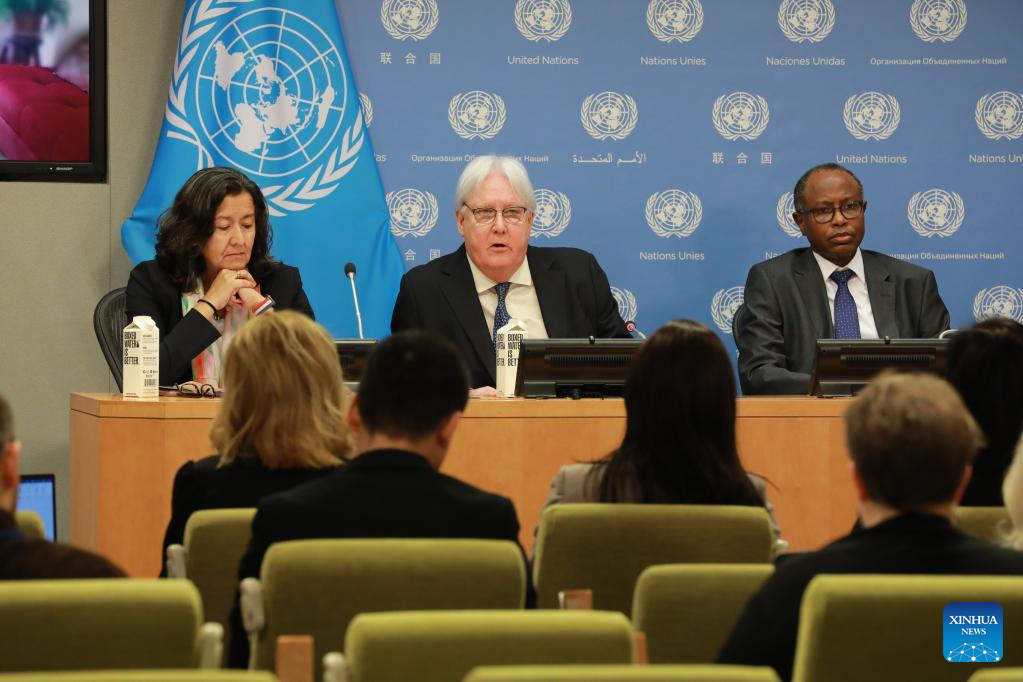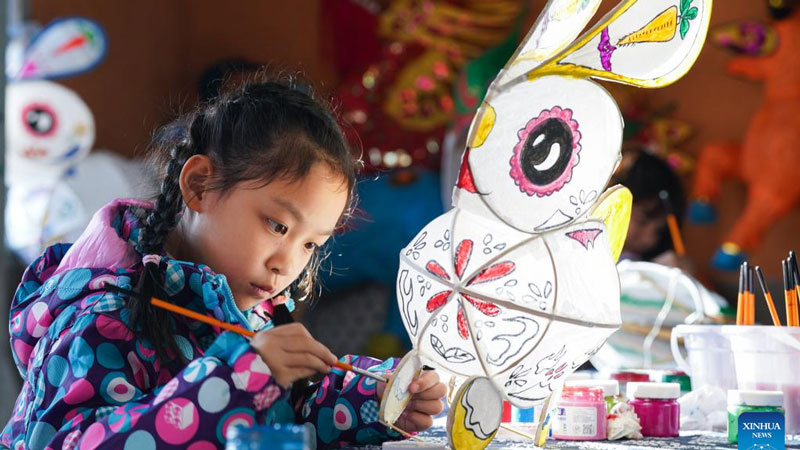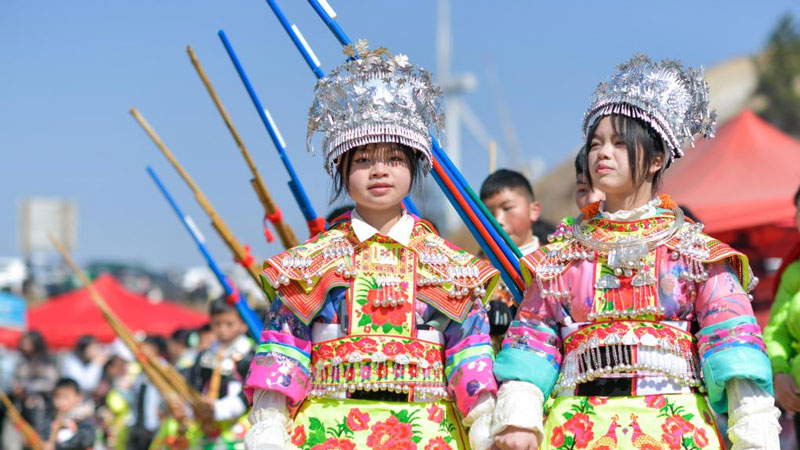Inter-agency mission to Afghanistan reports positive signs concerning women's rights

UN Undersecretary-General for Humanitarian Affairs Martin Griffiths (C, Rear) speaks at a press briefing on the situation in Afghanistan at the UN headquarters in New York, on Jan. 30, 2023. A mission of the Inter-Agency Standing Committee to Afghanistan has reported positive signs concerning women's rights in the country. (Xinhua/Xie E)
UNITED NATIONS, Jan. 30 (Xinhua) -- A mission of the Inter-Agency Standing Committee to Afghanistan has reported positive signs concerning women's rights in the country.
The mission was sent to Afghanistan last week to look into the effects of the ban on women being employed in national and local and international nongovernmental organizations (NGOs) and humanitarian work that was promulgated by the Taliban on Dec. 24, 2022.
Days after the Dec. 24 edict, the Afghanistan minister of public health said this edict would not apply in the health sector. That was followed a few days later by a similar exception in the education sector. So there already was a record of exceptions, said UN Undersecretary-General for Humanitarian Affairs Martin Griffiths, who chairs the committee and led the mission to Afghanistan.
"And in addition to making clear our grave concern about the edict itself, we then also said, okay, if you're not rescinding the edict now, then we must expand these exceptions to cover all the aspects of humanitarian action. And that was the agenda with which we met all those de facto Taliban leaders," Griffiths told a press briefing on Monday.
He said the mission spent several days in Kabul and met with nine Taliban leaders, including the de facto acting foreign minister, the de facto acting economy minister, the first and the second deputy prime ministers, and the interior minister.
"So we expressed our opposition to the ban, hope for it to be rescinded, and in the meantime asked for further sectors to be granted these exceptions or authorizations for the role and the function of women," said Griffiths. "In all these meetings, we were told that indeed, these such arrangements would be forthcoming ... we were asked to be patient."
The mission was told that guidelines are being developed by the Taliban authorities, which would provide allegedly the role of functioning of women in humanitarian operations, he said.
"Let's see if these guidelines do come through," said Griffiths, adding that "our view is that the message has clearly been delivered that women are central, essential workers in the humanitarian sector, in addition to having rights, and we need to see them back to work."
The Inter-Agency Standing Committee is a humanitarian coordination forum of the UN system. It brings together the executive heads of 18 organizations and consortia, with members from within and outside the United Nations, to formulate policy, set strategic priorities and mobilize resources in response to humanitarian crises.
At Monday's press briefing, the deputy executive director for programs at the UN Children's Fund, Omar Abdi, said there are some positive signs concerning the Taliban's ban on girls attending secondary education.
Since the Dec. 20 ban, an estimated 200,000 girls have continued to attend secondary schools in around 12 provinces, and female secondary-school teachers continued to receive their salaries from the de facto authorities, he said.
"The officials we met in Kabul ... reaffirmed that they are not against girls learning in secondary schools, and again promised to reopen once the guidelines are approved by their leader," he said.
In addition, over the last year, the number of community-based education classes taking place in private homes/public places has doubled from 10,000 to 20,000 classes. These serve about 600,000 children, of whom 55 percent are girls, said Abdi.
These positive signs are the results of both commitment from the de facto authorities and pressure from local communities to keep schools and community schools open, he said. "Without education, certainly there is no hope for a better future for girls and women of Afghanistan."
Janti Soeripto, president and chief executive officer of Save the Children U.S., called on donor countries not to freeze or withhold humanitarian funding for Afghanistan.
"Donor countries must continue to support a unified, principled response that includes men and women, and refrain from freezing or withholding this flexible funding that we so desperately need. We need the international community to stand by and not give (up) hope on the women, girls and men and boys in Afghanistan," she told the press briefing.
If the ban on women's participation in humanitarian work isn't reversed, the consequences for the people of Afghanistan will be dire, and that's the message the mission has taken to the de facto authorities in Afghanistan, she said.
As there has been some progress, her organization is hopeful that discussions across the various provinces to resume its work will continue, said Soeripto.

UN Undersecretary-General for Humanitarian Affairs Martin Griffiths speaks at a press briefing on the situation in Afghanistan at the UN headquarters in New York, on Jan. 30, 2023. A mission of the Inter-Agency Standing Committee to Afghanistan has reported positive signs concerning women's rights in the country. (Xinhua/Xie E)
Photos
 Village visited by Xi embarks on journey of rural revitalization
Village visited by Xi embarks on journey of rural revitalization Tourists take part in lantern parade to celebrate Chinese New Year in E China's Anhui
Tourists take part in lantern parade to celebrate Chinese New Year in E China's Anhui Scenic spots in Xi'an welcome legions of tourists with colorful lights and lanterns
Scenic spots in Xi'an welcome legions of tourists with colorful lights and lanterns Miao people participate in traditional dancing activity in SW China's Guizhou
Miao people participate in traditional dancing activity in SW China's Guizhou
Related Stories
- Pakistan, Russia reaffirm commitment to peace, stability in Afghanistan
- UN committed to delivery of humanitarian aid in Afghanistan: envoy
- Chinese envoy calls for more int'l support for Afghanistan
- Afghanistan receives another 40 mln U.S. dollars in cash aid
- Land corridor via rail connects Afghanistan to China as 1st freight arrives
Copyright © 2023 People's Daily Online. All Rights Reserved.





